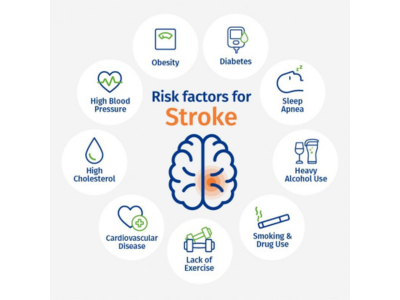Understanding Carotid Surgery for Stroke Prevention
Carotid surgery aims to reduce the risk of stroke by addressing blockages or narrowing in the carotid arteries, the major blood vessels in the neck that supply blood to the brain.
Definition and Types:
Carotid surgery involves two primary procedures:
- Carotid Endarterectomy (CEA): This surgical procedure involves removing plaque buildup from the carotid artery to restore proper blood flow to the brain.
- Carotid Artery Stenting (CAS): In this minimally invasive procedure, a stent is inserted into the carotid artery to open the blocked or narrowed area and improve blood flow.
Indications and Risk Factors:
Carotid surgery is typically recommended for individuals with significant carotid artery blockages or narrowing (stenosis) and a history of transient ischemic attacks (TIAs) or minor strokes. Risk factors for carotid artery disease include advanced age, smoking, high blood pressure, high cholesterol, diabetes, and a family history of vascular disease.
Benefits and Outcomes of Carotid Surgery
Carotid surgery offers several benefits, including stroke prevention and improved blood flow to the brain.
Stroke Prevention:
By removing or repairing blockages in the carotid arteries, carotid surgery reduces the risk of stroke. Removing plaque buildup or placing a stent helps restore proper blood flow, preventing the formation of blood clots that can lead to strokes.
Improved Blood Flow and Symptoms:
Carotid surgery can alleviate symptoms associated with carotid artery disease, such as transient ischemic attacks (TIAs) or minor strokes. Restoring blood flow to the brain can improve cognitive function, reduce dizziness, and lessen the frequency and severity of TIAs.
Carotid Surgery Procedure and Recovery
Understanding the carotid surgery procedure and what to expect during recovery is essential for informed decision-making and optimal outcomes.
Preoperative Evaluation:
Before carotid surgery, a comprehensive evaluation is conducted, including medical history, physical examination, and diagnostic tests such as ultrasound, angiography, or MRI to determine the extent of carotid artery blockage and assess overall vascular health.
Carotid Endarterectomy (CEA) Procedure:
During CEA, the surgeon makes an incision in the neck, opens the affected carotid artery, removes plaque deposits, and repairs the artery. The incision is then closed with sutures or staples.
Carotid Artery Stenting (CAS) Procedure:
CAS is a minimally invasive procedure where a small incision is made in the groin or arm. A catheter with a deflated balloon and stent is guided to the blocked or narrowed area in the carotid artery. The balloon is inflated to expand the stent and improve blood flow. Once in place, the stent remains to support the artery and keep it open.
Recovery and Postoperative Care:
After carotid surgery, patients are monitored in a hospital setting for a brief period to ensure proper healing and recovery. Recovery may involve pain management, mobility exercises, and instructions on wound care and medication management. Most patients can resume normal activities within a few weeks.
Risks and Complications
Although carotid surgery is generally safe, like any surgical procedure, it carries some risks and potential complications.
Surgical Risks:
Potential surgical risks include bleeding, infection, blood clots, damage to nearby structures, and adverse reactions to anesthesia.
Complications:
Complications specific to carotid surgery may include cranial nerve injury, stroke, acute coronary syndrome, restenosis (re-narrowing of the artery), or complications associated with the stent.
Lifestyle Modifications for Stroke Prevention
In addition to carotid surgery, lifestyle modifications play a crucial role in preventing strokes and maintaining overall vascular health.
Healthy Diet:
A heart-healthy diet low in saturated fats, cholesterol, and sodium and rich in fruits, vegetables, whole grains, lean proteins, and healthy fats can reduce the risk of further vascular disease.
Regular Exercise:
Engaging in regular physical activity helps manage weight, control blood pressure, improve circulation, and promote overall cardiovascular health.
Smoking Cessation:
Quitting smoking is essential, as smoking damages blood vessels, accelerates the progression of arterial disease, and increases the risk of stroke.
Frequently Asked Questions (FAQs):
Seeking Expert Vascular Care
At
VascularHyd, we specialize in carotid surgery for stroke prevention. Dr. Rahul Agarwal and our team of skilled professionals provide personalized care and tailored treatment plans.
Why Choose VascularHyd?
- Expertise in carotid surgery for stroke prevention
- State-of-the-art facilities and advanced imaging technologies
- Highly skilled vascular surgeons and medical professionals
- Patient-centered care and individualized treatment plans
- Comprehensive postoperative care and follow-up
Contact us today to schedule a consultation and discuss your carotid surgery for stroke prevention concerns.
